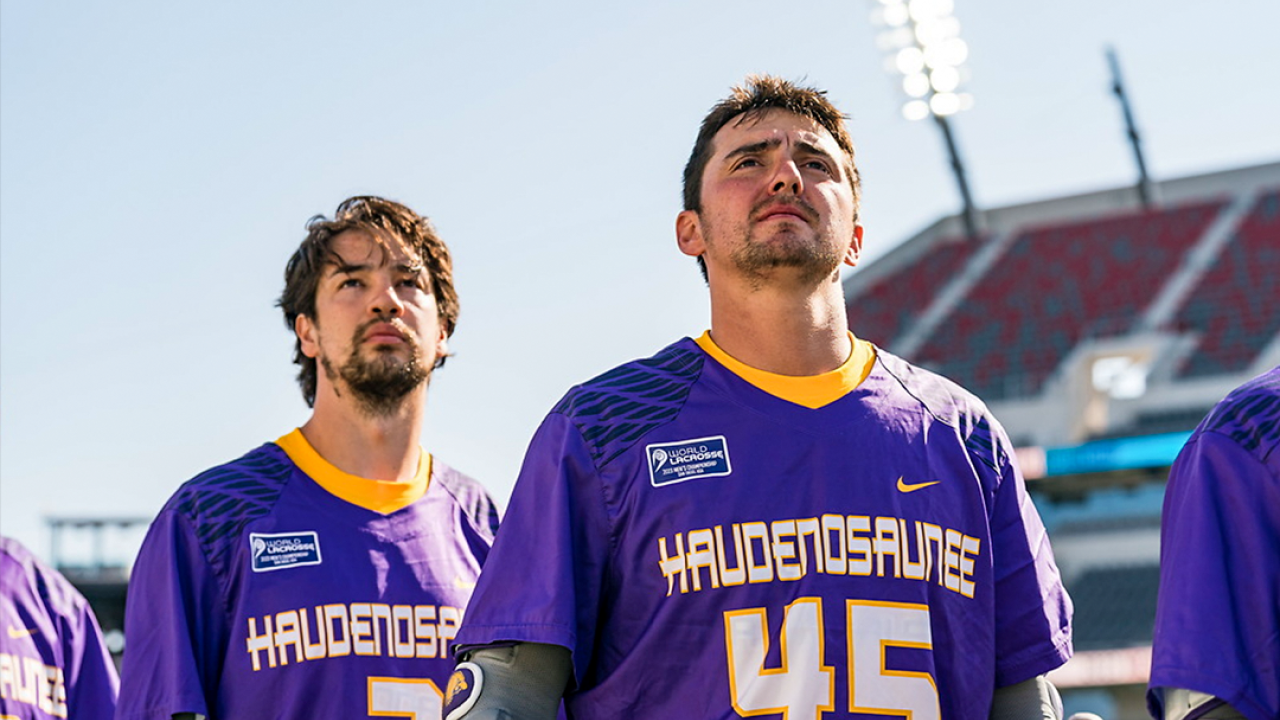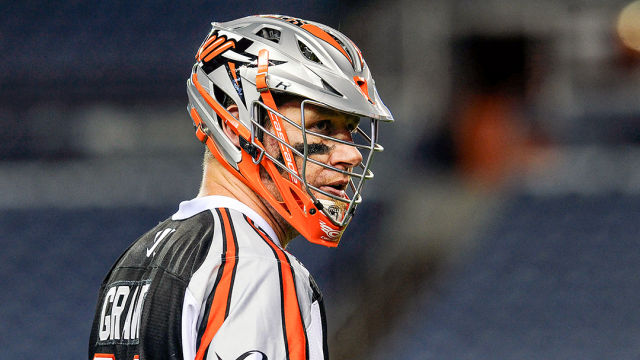
President Biden Backs Haudenosaunee Lacrosse Bid for 2028 Olympics
President Joe Biden announced Wednesday his position supporting the Haudenosaunee Confederacy’s bid to compete as its own nation when lacrosse returns to the Olympics at the 2028 Games in Los Angeles. The story was first reported by the Associated Press and USA Today.
Biden made the announcement ahead of the third-annual White House Tribal Nations Summit.
“This fall it was announced that lacrosse will once again be an official Olympic sport,” Biden said. “The Six Nations team asked to compete under its own tribal flag, and today I’m announcing my support for that request. Their ancestors invented the game. They perfected it for millennia. Their circumstances are unique, and they should be granted an exception to field their own team at the Olympics.”
"Their ancestors invented the game. They perfected it for millennia. Their circumstances are unique, and they should be granted an exception to field their own team at the Olympics." — @POTUS
— USA Lacrosse Magazine (@USALacrosseMag) December 6, 2023
President Biden Backs @HAU_Nationals Bid for 2028 Olympics: https://t.co/ZetgDOOLOV pic.twitter.com/6vxSUJuDrl
Recognized by World Lacrosse since 1987, the Haudenosaunee have competed in world championships since then, most recently winning the bronze medal in the 2023 World Lacrosse Men’s Championship in San Diego.
Participation in the Olympics, however, would require the IOC to make an exception to its rules, since the Haudenosaunee Confederacy does not have a national Olympic committee.
“We’re hopeful the IOC will see it our way, as well,” Tom Perez, the White House senior adviser and director of intergovernmental affairs, told the AP. “If we’re successful, it won’t simply be the flag of the Haudenosaunee Confederacy that marches in the Olympics, it will be the flag of Indigenous people across the world.”
The Los Angeles 2028 organizing committee had previously expressed its support of the Haudenosaunee in its proposal to add lacrosse to the Olympic program. In an address to the IOC Session prior the bid’s historic approval in October, LA28 chief operating officer John Harper acknowledged the Native American origins of lacrosse and said the sport would add “the narrative of heritage and unity” to the 2028 Games.
LA28 will mark the third Olympic appearance for lacrosse, which is now played in nearly 100 countries around the world. It was contested as a medal sport in 1904 (St. Louis) and 1908 (London). It was later featured as a demonstration sport in three Olympics: Amsterdam 1928, Los Angeles 1932 and London 1948.
World Lacrosse and the Haudenosaunee Nationals issued a joint statement welcoming the support of the White House.
“World Lacrosse and Haudenosaunee Nationals Lacrosse express our sincere gratitude to President Biden and the United States government for their expressed support of Haudenosaunee inclusion in the lacrosse competition at the LA28 Olympic Games,” the statement said. “Recognition of the cultural significance of lacrosse to the Haudenosaunee people — and the Haudenosaunee people to lacrosse — is an important step in our Olympic journey.
“The Olympic Games are the most powerful platform for promoting understanding and peace among nations. We look forward to continuing to collaborate with the International Olympic Committee, LA28 and the U.S. and Canadian Olympic Committees to explore potential pathways for the Haudenosaunee to participate in the Olympics while respecting the Olympic Games framework.”
Joint statement from World Lacrosse and Haudenosaunee Nationals Lacrosse: pic.twitter.com/SX32puDDyo
— World Lacrosse (@WorldLacrosse) December 6, 2023
Lacrosse started with the Indigenous peoples of North America, who played variations of the sport as early as the 12th century. The games held significant cultural and spiritual importance, often serving as rituals and training for war.
That origin story was recognized in a most meaningful way Wednesday in Washington.
“It sounds symbolic,” Haudenosaunee Nationals executive director Leo Nolan said in an interview with USA Today. “But in reality, is it a symbol or is it really the right thing to do — to include the originators of the game in a way that honors the IOC framework? We're looking forward to figuring out what those pathways will be.”
Related Articles




